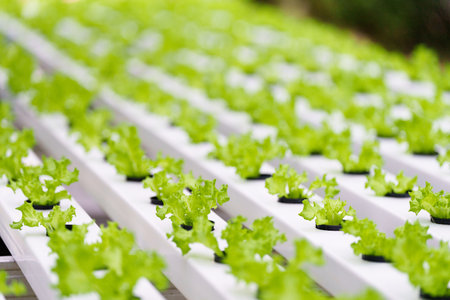Introduction to Foraging in the British Countryside
Foraging has seen a significant revival across the UK in recent years, as more people seek a closer connection to nature and an understanding of the wild foods growing on their doorstep. The British countryside is rich with edible plants that have been used for centuries, not only to add flavour to meals but also for their potential health benefits—particularly those that support liver and kidney function. However, foraging here is guided by a strong ethos of responsibility and respect. Safety is paramount: never consume anything unless you are absolutely certain of its identity, as many poisonous plants closely resemble edible ones. In addition, British law protects certain species and habitats, so its vital to familiarise yourself with regulations such as the Wildlife and Countryside Act 1981. Responsible foragers always follow the leave no trace principle, only taking what they need and ensuring the continued health of wild plant populations for both wildlife and future generations. Whether youre wandering through ancient woodlands or exploring windswept meadows, approaching foraging with care and consideration ensures that this rewarding practice remains sustainable and safe for all.
Understanding Liver and Kidney Health
The liver and kidneys are two of the most vital organs in the human body, each playing a unique role in maintaining our health. The liver acts as a chemical processing plant, filtering toxins from the blood, aiding digestion through bile production, and storing essential nutrients. Meanwhile, the kidneys regulate fluid balance, filter waste products from the bloodstream, and help maintain optimal blood pressure. Both organs work tirelessly to keep our systems in balance—without them, our bodies would quickly accumulate harmful substances.
Why Focus on Plant-Based Supports?
In the context of foraging in the British countryside, turning to native plants for liver and kidney support makes sense both culturally and ecologically. Many traditional British remedies have long relied on local herbs and wild greens to promote organ health. Modern research also points towards various plant compounds—such as antioxidants, flavonoids, and saponins—that can gently assist these organs by reducing inflammation, supporting detoxification pathways, and offering protective effects against environmental stressors.
Key Functions of the Liver and Kidneys
| Organ | Main Functions |
|---|---|
| Liver | Detoxifies blood Produces bile for digestion Stores vitamins and minerals Metabolises fats, proteins, carbohydrates |
| Kidneys | Filters waste from blood Regulates fluid and electrolyte balance Maintains blood pressure Supports red blood cell production |
The Benefits of Foraged Plant Support
Wild plants found in the British countryside—such as dandelion leaves, nettles, or cleavers—offer gentle support that aligns with seasonal rhythms. Unlike synthetic supplements, these foraged foods often provide a spectrum of nutrients and phytochemicals in their natural form. Incorporating such plants into your diet can help fortify liver and kidney function without overwhelming these sensitive organs.

3. Identifying Liver and Kidney Friendly Wild Plants
The British countryside is a treasure trove of native plants that can support liver and kidney health, but successful foraging requires both knowledge and care. Some of the most respected plants in British folk medicine include dandelion (Taraxacum officinale), nettle (Urtica dioica), and cleavers (Galium aparine). Below, we take an in-depth look at these and other beneficial species, with practical identification tips and essential foraging guidelines.
Dandelion (Taraxacum officinale)
Dandelions are easily recognisable by their bright yellow flowers and jagged-edged leaves. Every part is edible, but the roots and leaves are particularly valued for supporting liver detoxification. Dandelions often grow on grassy verges, meadows, and even pavements. Be sure to pick from areas away from traffic pollution or pesticides.
Nettle (Urtica dioica)
Common nettles are renowned for their stinging hairs, so gloves are advisable when picking. Look for heart-shaped, serrated leaves in clusters atop fibrous stems. Nettles are found in hedgerows, woodland edges, and along riverbanks. They are rich in minerals and have traditionally been used as a gentle diuretic, supporting kidney function.
Cleavers (Galium aparine)
Also known as sticky willy, cleavers have whorled leaves covered in tiny hooked hairs that cling to clothing. This scrambling plant grows abundantly in spring among hedges and field margins. Cleavers have a long history in herbalism as a lymphatic cleanser, indirectly benefitting the kidneys by encouraging fluid movement through the body.
Other Notable Wild Plants
- Burdock (Arctium lappa): Recognised by its broad leaves and purple thistle-like flowers; roots are prized for liver support.
- Elderflower (Sambucus nigra): White flower heads appearing in late spring; traditionally used to encourage sweating and support kidney cleansing.
Foraging Guidelines
Always seek permission before foraging on private land, stick to public footpaths where permitted, and take only what you need—never uproot entire plants unless abundant. Ensure correct identification using reputable field guides or local experts, as many edible plants have toxic lookalikes. Wash all wild greens thoroughly before use to remove dirt or insects. By following these principles, you can safely enjoy the wealth of the British countryside while supporting your liver and kidney health naturally.
4. Responsible and Sustainable Foraging Practices
Foraging in the British countryside offers a wonderful connection to nature, but it is essential that we do so responsibly. Protecting local flora ensures these resources remain for future generations and continues to support the delicate balance of our native ecosystems. Here are key guidelines for sustainable foraging, adhering to the Countryside Code, and fostering community respect.
Guidance on Protecting Local Flora
When gathering plants that support liver and kidney health—such as nettles or dandelion leaves—its crucial to take only what you need and leave enough for wildlife and plant regeneration. Avoid uprooting entire plants unless you have explicit permission, as this can irreversibly damage populations. Opt to harvest leaves or flowers rather than roots where possible.
Adhering to the Countryside Code
The Countryside Code provides practical advice for anyone exploring rural areas. Its main points relevant to foragers include:
| Countryside Code Principle | Forager’s Action |
|---|---|
| Respect everyone | Seek landowner permission; avoid private gardens and protected sites. |
| Protect the natural environment | Stick to public footpaths, avoid disturbing habitats, and do not trample sensitive ground cover. |
| Enjoy the outdoors responsibly | Take litter home, keep dogs under control, and never light fires. |
Fostering Community Respect
Foraging is a tradition best shared with others. Joining local groups or sharing knowledge helps build a respectful community spirit. Always be mindful not to over-harvest an area, especially if its popular or near residential spaces. Sharing your finds or tips can encourage others to forage responsibly and sustainably.
5. Simple Traditional British Recipes Using Foraged Plants
Bringing foraged ingredients into the kitchen is a wonderful way to reconnect with both nature and Britain’s rich culinary heritage. When focusing on liver and kidney health, it’s important to prioritise gentle cooking methods and avoid heavy fats or excessive seasoning. Below are some practical suggestions for weaving foraged greens, roots, and herbs into everyday British dishes while being kind to your organs.
Hedgerow Soup
A warming hedgerow soup can be made by gently simmering young nettles, dandelion leaves, and chickweed with leeks, potatoes, and a splash of oat milk. Keep the seasoning light—just a pinch of sea salt and a few twists of black pepper. Serve with wholemeal bread for a wholesome lunch that supports gentle digestion and organ function.
Wilted Wild Greens on Toast
Try wilting a mixture of foraged sorrel, wild garlic, and purslane in a pan with a drizzle of rapeseed oil. Spoon onto toasted sourdough and finish with a squeeze of fresh lemon juice. This simple dish honours classic British toast toppings while providing a mineral-rich boost without overwhelming the liver or kidneys.
Nettle and Potato Mash
Boil peeled potatoes until soft, then stir in blanched young nettle tops before mashing. Add only a little unsalted butter or olive oil to keep things light. The result is a vibrant green mash that pairs well with grilled fish or roast root vegetables—a comforting side that makes the most of spring’s bounty.
Dandelion Leaf Salad
Young dandelion leaves can be tossed with sliced radishes, cucumber, and apple for a peppery salad. Dress with just a splash of cider vinegar and cold-pressed flaxseed oil for omega-3s. This salad works as an accompaniment to baked chicken or poached eggs—both gentle protein sources for liver and kidney support.
Tips for Gentle Preparation
Blanching or steaming foraged plants helps retain nutrients while ensuring they are easy to digest. Avoid frying or pairing these greens with rich sauces; instead, celebrate their natural flavours in simple preparations. By thoughtfully incorporating wild edibles into traditional recipes, you’ll enjoy both the taste of the countryside and peace of mind knowing you’re supporting your body’s vital organs.
6. Precautions and When to Avoid Foraging
Foraging in the British countryside can be a rewarding and healthful activity, especially when seeking plants that support liver and kidney function. However, safety must always come first. This section outlines important considerations to ensure a positive foraging experience.
Allergies and Individual Sensitivities
Before consuming any wild plant, it is crucial to consider possible allergies or sensitivities. Even common British flora, such as nettles or dandelions, may provoke allergic reactions in some individuals. If you have a history of food allergies or sensitivities, consult your GP before trying new wild foods. Always start with small quantities to observe any adverse effects.
Risks of Misidentification
One of the greatest hazards in foraging is mistaking a harmful plant for an edible one. The British countryside is home to several toxic species that closely resemble their safe counterparts—for example, foxglove leaves can be confused with comfrey. Invest time in learning from reliable field guides or join local foraging groups led by experienced foragers. When in doubt, leave the plant undisturbed.
Environmental Hazards
Countryside environments present hazards beyond the plants themselves. Avoid foraging near busy roads or industrial areas where plants may have absorbed pollutants or heavy metals, which are particularly detrimental to liver and kidney health. Be mindful of agricultural land treated with pesticides or herbicides—these chemicals can remain on plants long after application.
Legal and Ethical Considerations
The UK has specific laws governing wild plant collection. Some species are protected under the Wildlife and Countryside Act 1981, making it illegal to pick them. Additionally, always seek permission before foraging on private land and take only what you need to preserve local plant populations.
When Not to Forage
If you are unsure about identification, if the area appears contaminated, or if you have underlying health conditions affecting your liver or kidneys, it is best to abstain from foraging altogether. Pregnant women, young children, and those on immunosuppressant medications should exercise extra caution.
By respecting these precautions and guidelines, you can safely enjoy the benefits of foraging while supporting your liver and kidney health amidst Britain’s rich natural landscape.


